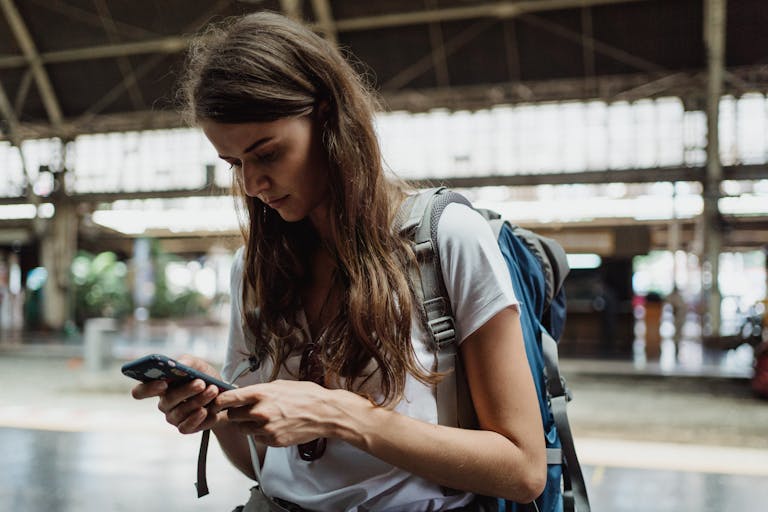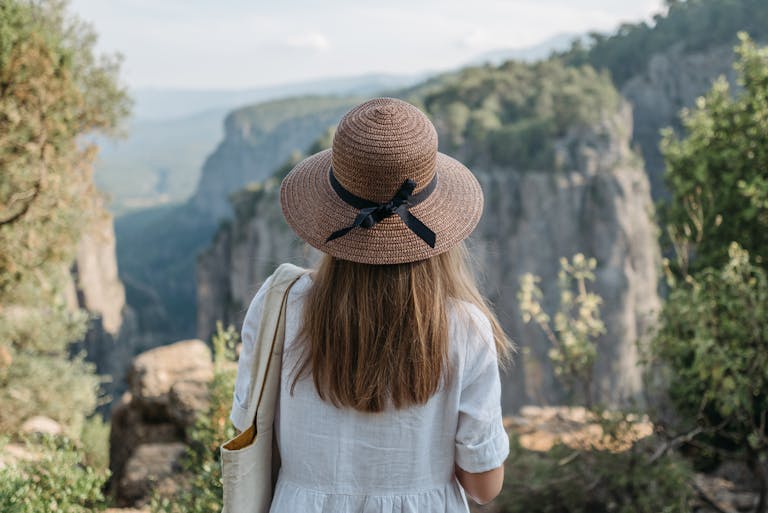Top 10 Safety Tips for First-Time Travelers
Traveling for the first time can be an exhilarating experience, filled with new sights, sounds, and adventures. The thrill of exploring unknown destinations comes with its own set of challenges, especially when it comes to safety. Ensuring your safety while traveling is paramount, particularly for those venturing abroad for the first time.
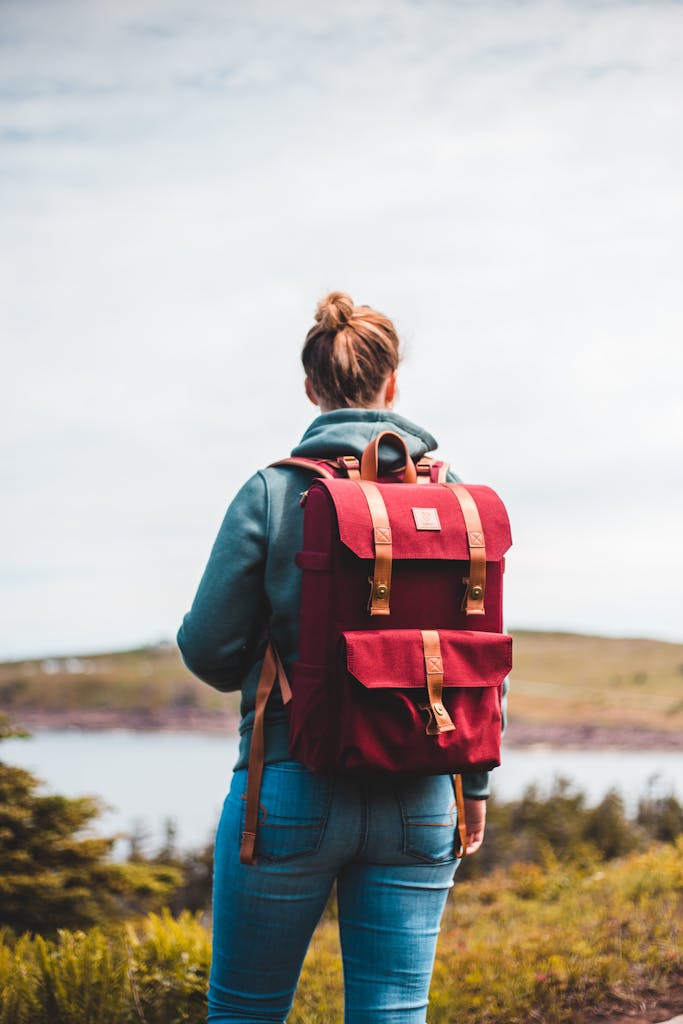
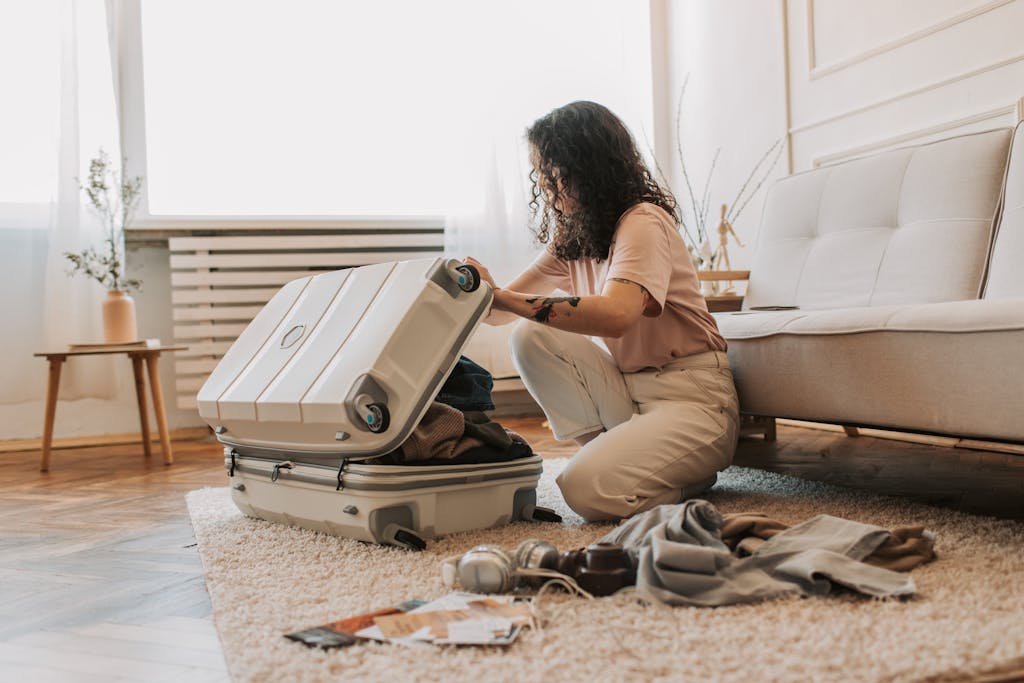

Safety is not just about protecting yourself from physical harm but also about safeguarding your belongings and being prepared for unexpected situations. By prioritizing safety, you can fully immerse yourself in the joy of travel without unnecessary worries.
In this article, we’ll discuss the Top 10 Safety Tips For Traveling For The First Time, which include:
- Research Your Destination
- Stay Connected
- Travel Insurance
- Secure Your Belongings
- Transport Safety Tips
- Group Travel Benefits For Safety
- Stay Aware Of Your Surroundings At All Times
- Emergency Contacts To Keep Handy While Traveling
- Health Precautions To Take Before And During Your Trip
- Local Laws And Customs To Be Aware Of While Abroad
These tips will help you navigate your journey with confidence and ensure a memorable first travel experience.
1. Research Your Destination
Understanding local laws and customs is essential for any traveler. Different countries have unique cultural norms and legal requirements that might surprise you if unprepared. For instance, in some cultures, certain gestures or attire might be considered disrespectful. To avoid misunderstandings, familiarize yourself with basic etiquette and rules.
Effective resources for destination research include:
- Government Travel Websites: Sites like the U.S. Department of State or the UK Foreign Office provide updated travel advisories and essential information about local laws.
- Travel Forums and Blogs: Platforms like TripAdvisor, Facebook groups or travel blogs can offer firsthand insights from fellow travelers.
- Guidebooks: Trusted names like Lonely Planet and Rough Guides provide comprehensive overviews of destinations.
Engaging in thorough destination research not only fosters cultural awareness but also ensures a smoother, safer journey.
2. Stay Connected
Reliable communication is crucial while traveling, especially for handling emergencies. Ensuring you have a dependable way to stay in touch can make a significant difference in your travel experience.
Options for Staying Connected:
- Local SIM Card: Cost-effective, local rates for calls and data, easier access to local services.
- International Phone Plan: Convenience of retaining your home number, seamless connectivity.
When choosing between a local SIM card and an international plan, consider your length of stay, budget constraints, and how frequently you’ll need to make calls or use the internet. Both options offer different advantages that can cater to varied traveler needs.
3. Travel Insurance
When going on your first trip, getting travel insurance is important. There are different types of travel insurance coverage for different needs:
- Medical Coverage: Protects against health emergencies and medical expenses abroad.
- Trip Cancellation: Offers reimbursement for non-refundable trip costs if you need to cancel due to unforeseen circumstances.
- Baggage Loss/Theft: Compensates for lost or stolen belongings during your travels.
Having travel insurance gives you peace of mind, making sure that unexpected events won’t ruin your adventure. Whether it’s dealing with a sudden illness or a canceled flight, coverage can help you handle these problems smoothly.
In addition to travel insurance, it’s also important to consider travel essentials that can make your journey smoother. From packing smart to choosing versatile luggage and embracing minimalist travel, these tips can help streamline your travel experience. You can explore more about these essential travel tips on our blog, which is filled with expert advice and city guides to help you plan your next trip with confidence and curiosity.
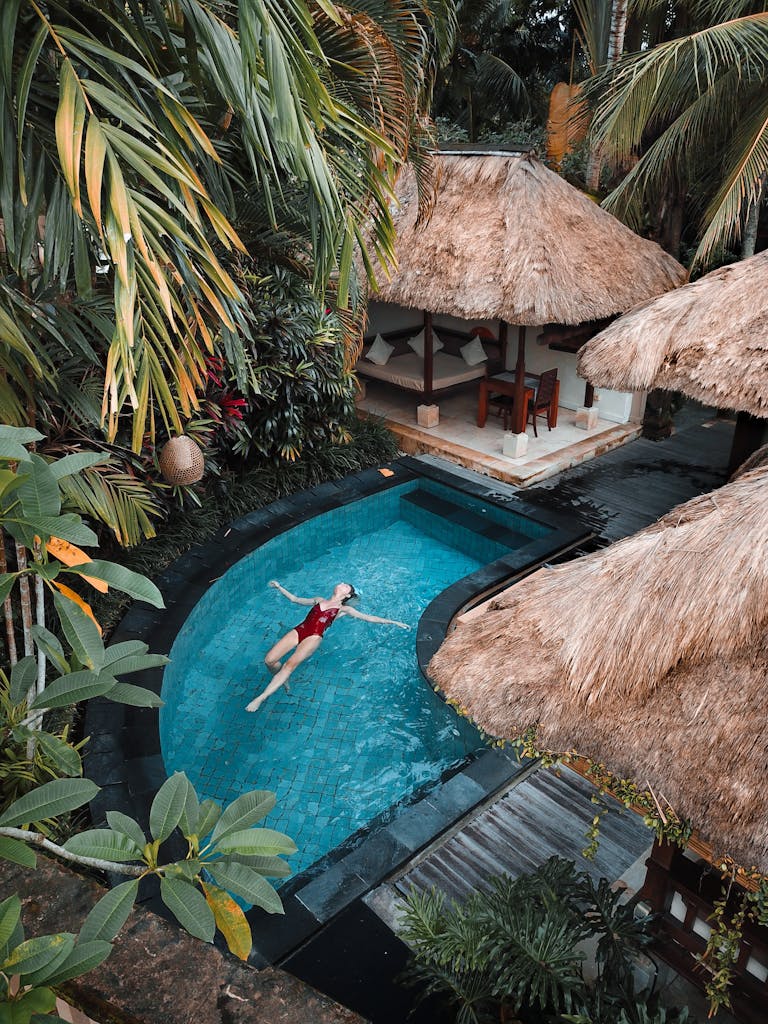
4. Secure Your Belongings
Keeping your valuables safe is crucial when traveling, especially for first-timers. Here are some best practices for securing your belongings:
- Money Belt: Using a money belt can keep your passport, cash, and important documents close and concealed. It’s a discreet way to carry essentials without drawing attention.
- Anti-Theft Strategies: Consider investing in anti-theft bags equipped with locking zippers and RFID blocking technology. These features deter pickpockets and protect against electronic theft.
- Hotel Safes: Utilize hotel safes to store passports, extra cash, and other valuables when not in use. Ensure the safe is secure and reliable.
- Minimalist Approach: Carry only what’s necessary. Leave irreplaceable items at home and avoid flaunting expensive gadgets or jewelry.
By adopting these strategies, you enhance your travel experience by minimizing the risk of theft or loss.
Check out 10 Tips for Packing Light on Trips which may give you some further ideas.
5. Transport Safety Tips
Getting around in a new place can be challenging, especially if you’re not familiar with the transportation options available. It’s important to be cautious when using unregulated transportation methods, as they can come with risks such as scams and safety issues.
Identifying Safe Transportation Methods:
- Registered Taxis: Always opt for registered taxi services. Look for official markings or ask your accommodation provider for reputable companies.
- Rideshare Safety Tips: When using rideshare apps like Uber, verify the driver’s identity and car details before getting in. Share your trip status with a trusted contact.
- Public Transport: Research local public transport systems. Many cities have reliable bus, metro, or train networks that are safe and cost-effective.
- Airport Transfers: Pre-book airport transfers through your hotel or a reputable service to avoid last-minute hassles.
By staying informed about the transportation options in your destination and choosing safe methods of travel, you can ensure a smoother and more enjoyable trip.
6. Group Travel Benefits For Safety
Group travel offers numerous advantages for safety purposes, especially for first-time travelers. One of the primary benefits is the inherent safety in numbers. When you travel with a group, there are more eyes to observe potential risks and more people to assist if an emergency arises. This collective vigilance can deter potential threats.
Key advantages include:
- Shared Knowledge: Traveling with a group often means having access to diverse experiences and knowledge. Members can share insights about local customs, safe areas, and trustworthy vendors.
- Support System: In case of illness or injury, having companions ensures you won’t be left alone to navigate foreign medical systems or language barriers.
- Local Guides: Many group travels include local guides who are familiar with the destination. These guides can provide invaluable advice on safe practices and help navigate complex local environments.
For first-time travelers, joining a group can significantly reduce anxiety and enhance the overall travel experience by providing a reassuring support network.
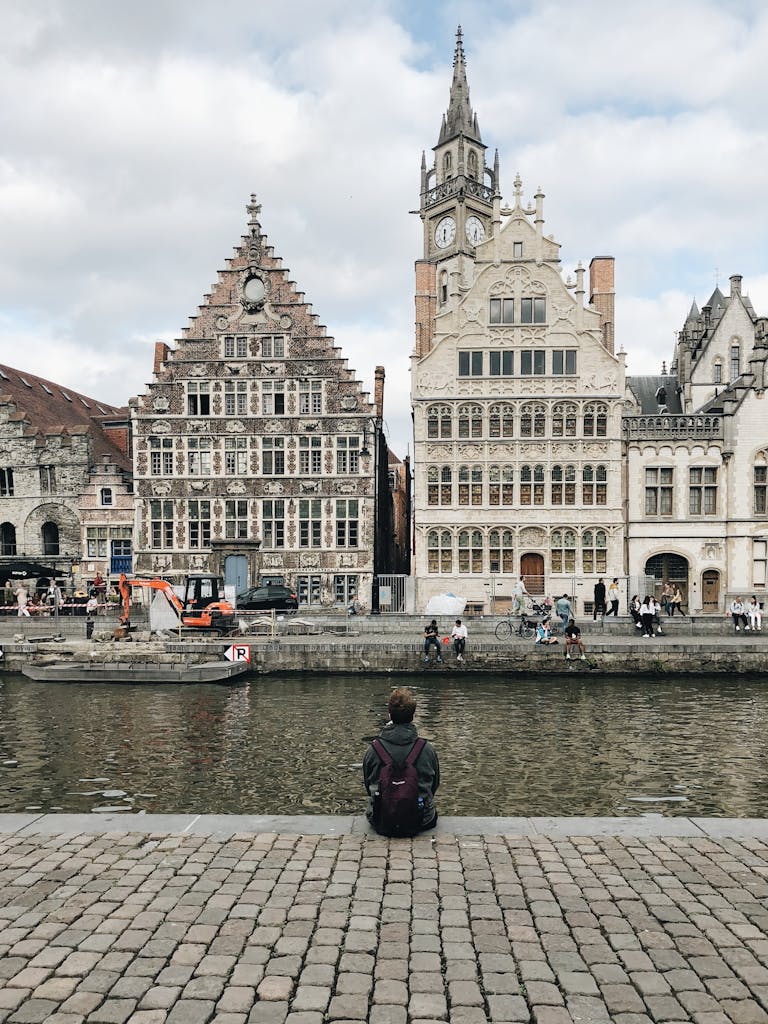
7. Stay Aware Of Your Surroundings At All Times
Maintaining situational awareness while traveling alone or in a group is crucial for your safety. Here are some techniques to help you stay alert:
- Observe Your Environment: Constantly scan your surroundings, noting exits, potential hazards, and people who appear out of place.
- Trust Your Instincts: If something feels off, don’t dismiss it. Trusting your gut can help you avoid potentially dangerous situations.
- Limit Distractions: Avoid using headphones or being engrossed in your phone while walking in unfamiliar areas. Staying present and aware can deter potential threats.
- Blend In: Dress like a local to avoid drawing unnecessary attention. This reduces the risk of being targeted as a tourist.
- Stay Sober: Alcohol impairs judgment and reflexes. Limiting consumption helps keep you aware and in control.
By incorporating these practices, you enhance your ability to navigate new environments safely and confidently.
8. Emergency Contacts To Keep Handy While Traveling
Having an emergency contacts list to have on hand during your trip can be a lifesaver. Keeping essential numbers readily accessible ensures you can quickly reach out for help when needed.
Key Contacts to Include:
- Local Emergency Numbers: Each country has its own emergency contact numbers for police, ambulance, and fire services. Research and save these before your departure.
- Embassy or Consulate Information: In case of serious incidents like lost passports or legal troubles, knowing how to contact your home country’s embassy can make a significant difference.
- Hotel or Accommodation Contact: Sometimes you need quick assistance from where you’re staying; having their contact details handy is crucial.
- Travel Insurance Provider: If you’ve taken travel insurance, keep their emergency helpline number with you to report any incidents immediately.
- Family/Friends Back Home: Ensure that someone you trust knows your itinerary and can be contacted in emergencies.
How to Keep Them Accessible:
- Printed List: A hard copy stored in a secure place like your wallet or travel pouch.
- Digital Copy: Save the list on your phone, preferably in more than one location (e.g., notes app and cloud storage).
- Emergency Card: Some travelers opt for a small card kept in their pocket with key numbers for instant access.
Staying prepared with these contacts helps mitigate risks and ensures that help is always within reach during your travels.
9. Health Precautions To Take Before And During Your Trip
Taking health precautions is crucial to avoid any health risks that may arise during your travels. Start by researching health advisories specific to your destination. Check resources like the CDC or WHO for up-to-date information on:
- Necessary Vaccinations: Some countries require specific vaccinations before entry, such as yellow fever or hepatitis A and B.
- Local Health Risks: Learn about common illnesses in the area, such as malaria or dengue fever, and how to prevent them.
- Medical Facilities: Know where the nearest hospitals or clinics are located.
Pack a travel health kit with essentials:
- Prescription Medications: Carry enough of your prescribed medications, along with copies of the prescriptions.
- First Aid Supplies: Include items like band-aids, antiseptic wipes, and pain relievers.
- Motion Sickness Remedies: If you’re prone to motion sickness, pack appropriate medications.
Stay hydrated and be mindful of food and water safety. Opt for bottled water and avoid raw or undercooked foods to reduce the risk of gastrointestinal issues.
By taking these steps, you ensure a healthier and safer travel experience.
10. Local Laws And Customs To Be Aware Of While Abroad
Understanding the importance of adhering to local laws to avoid legal troubles is crucial for any traveler. Different countries have varying regulations, and what might be a minor infraction in your home country could result in significant penalties abroad.
1. Legal Awareness as a Traveler in Foreign Countries
Researching local laws before you travel can prevent unintentional offenses. For instance, some countries have strict dress codes or regulations regarding public behavior.
2. Resources for Legal Information
Websites like the U.S. Department of State or your country’s equivalent provide detailed information on local laws and customs.
3. Cultural Sensitivities
Being aware of cultural practices is also essential. For example, in some cultures, it’s disrespectful to show the soles of your feet or to touch someone on the head.
4. Practical Examples
In Singapore, chewing gum is prohibited, while in Japan, tipping can be seen as rude. Adhering to these laws and customs not only ensures your safety but also shows respect for the host country’s culture.


